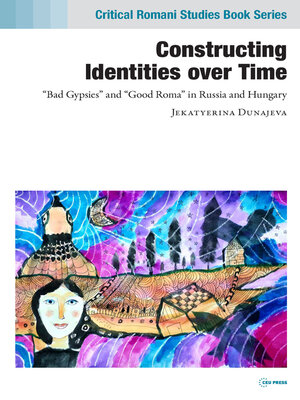Constructing Identities over Time
ebook ∣ "Bad Gypsies" and "Good Roma" in Russia and Hungary · Critical Romani Studies Book Series
By Jekatyerina Dunajeva

Sign up to save your library
With an OverDrive account, you can save your favorite libraries for at-a-glance information about availability. Find out more about OverDrive accounts.
Find this title in Libby, the library reading app by OverDrive.



Search for a digital library with this title
Title found at these libraries:
| Library Name | Distance |
|---|---|
| Loading... |
Jekatyerina Dunajeva explores how two dominant stereotypes—"bad Gypsies" and "good Roma"—took hold in formal and informal educational institutions in Russia and Hungary. She shows that over centuries "Gypsies" came to be associated with criminality, lack of education, and backwardness. The second notion, of proud, empowered, and educated "Roma," is a more recent development.
By identifying five historical phases—pre-modern, early-modern, early and "ripe" communism, and neomodern nation-building—the book captures crucial legacies that deepen social divisions and normalize the constructed group images. The analysis of the state-managed Roma identity project in the brief korenizatsija program for the integration of non-Russian nationalities into the Soviet civil service in the 1920s is particularly revealing, while the critique of contemporary endeavors is a valuable resource for policy makers and civic activists alike.
The top-down view is complemented with the bottom-up attention to everyday Roma voices. Personal stories reveal how identities operate in daily life, as Dunajeva brings out hidden narratives and subaltern discourse. Her handling of fieldwork and self-reflexivity is a model of sensitive research with vulnerable groups.







